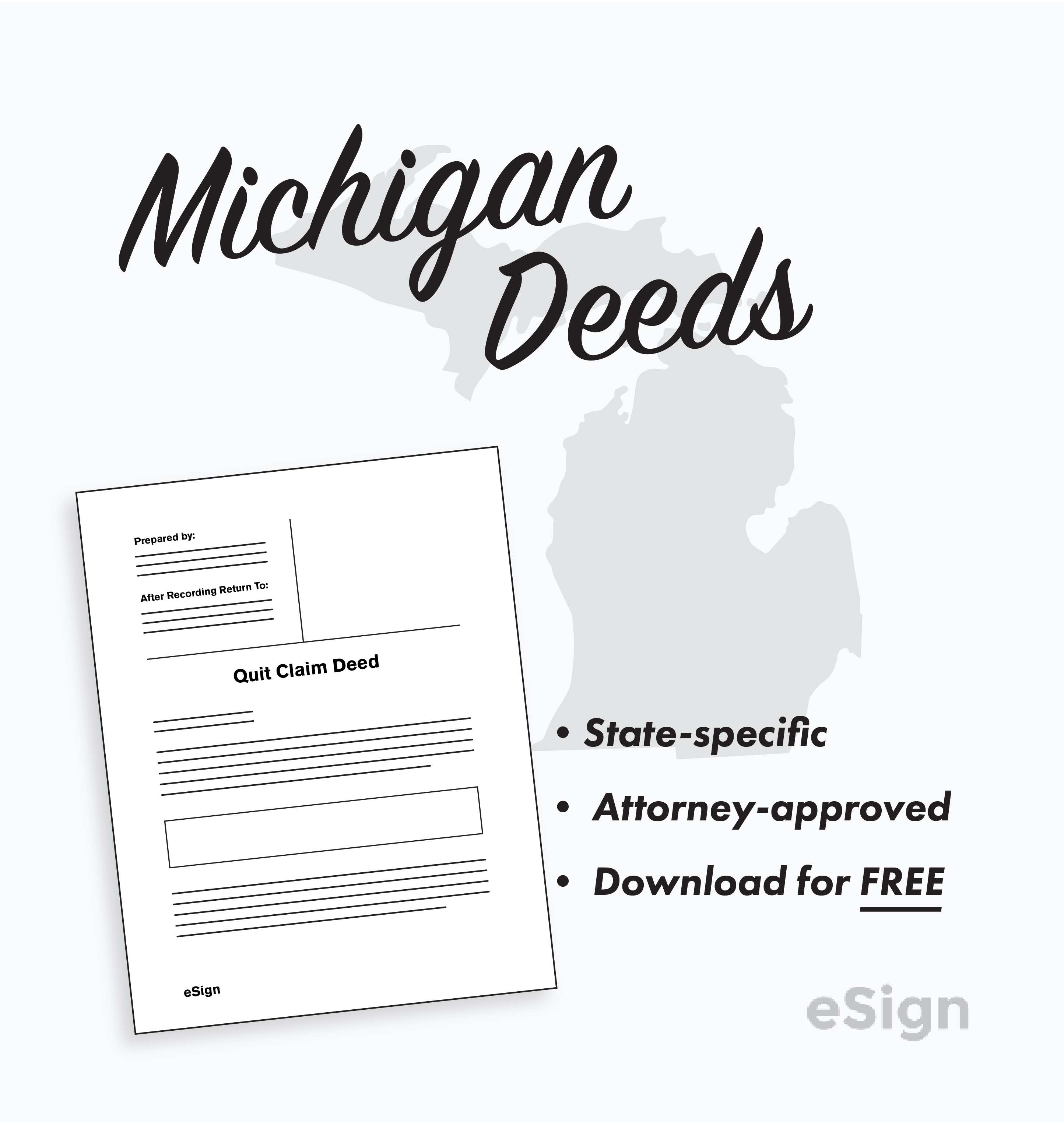By Type (4)
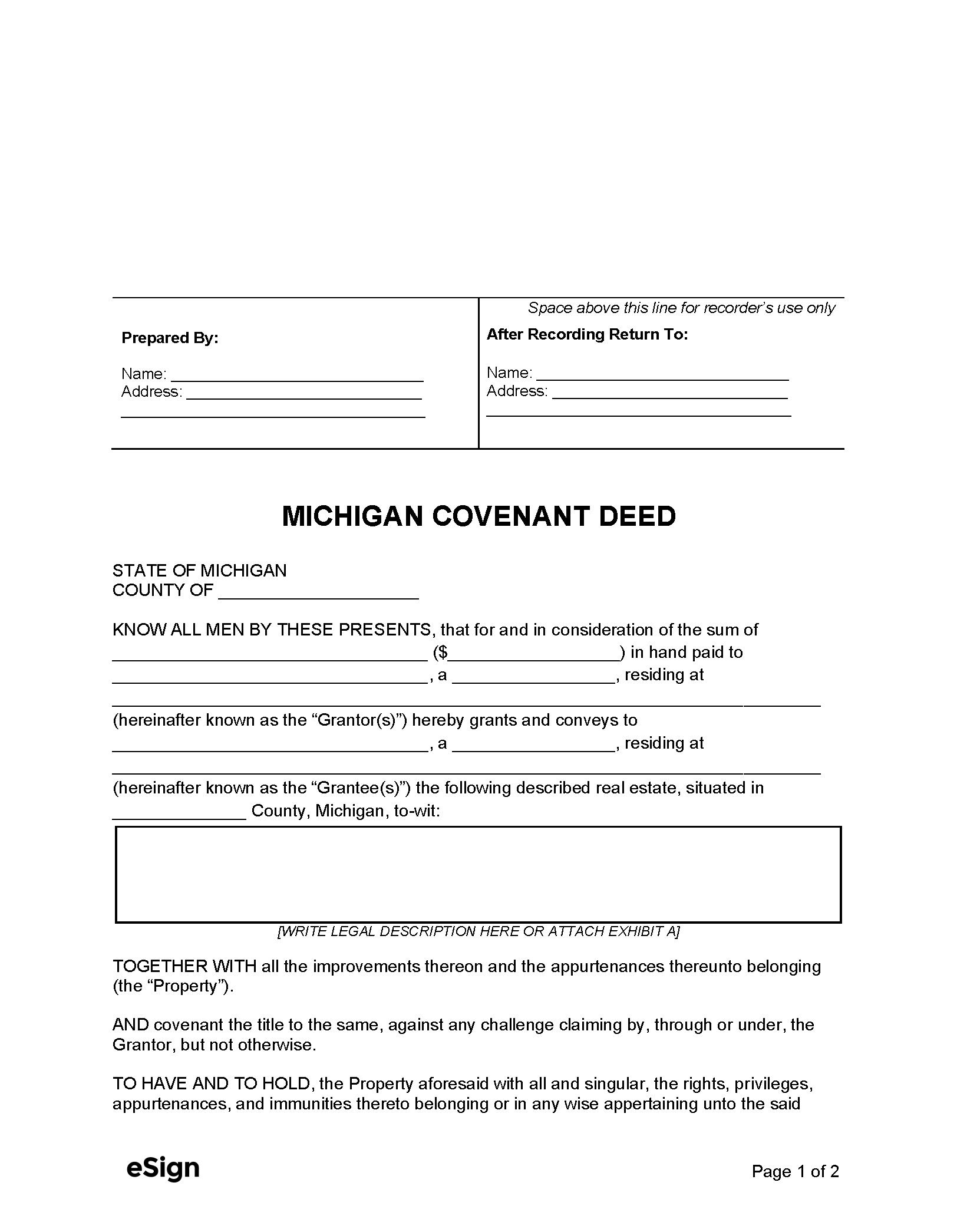 Covenant Deed – Guarantees that there are no outside claims to the property that occurred during the grantor’s period of ownership. Covenant Deed – Guarantees that there are no outside claims to the property that occurred during the grantor’s period of ownership.
|
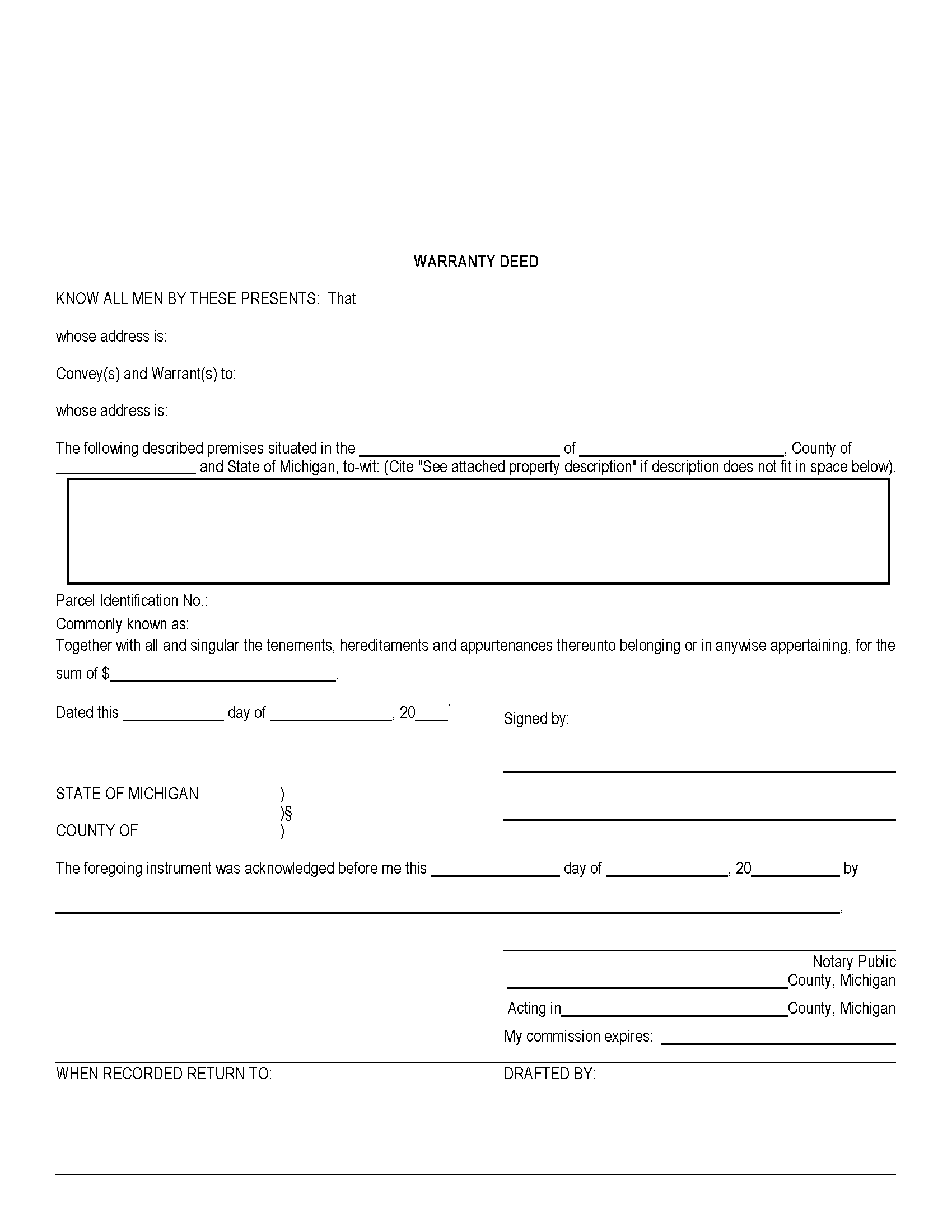 General Warranty Deed – Transfers real estate ownership with the full guarantee that the property is free of all encumbrances. General Warranty Deed – Transfers real estate ownership with the full guarantee that the property is free of all encumbrances.
Download: PDF |
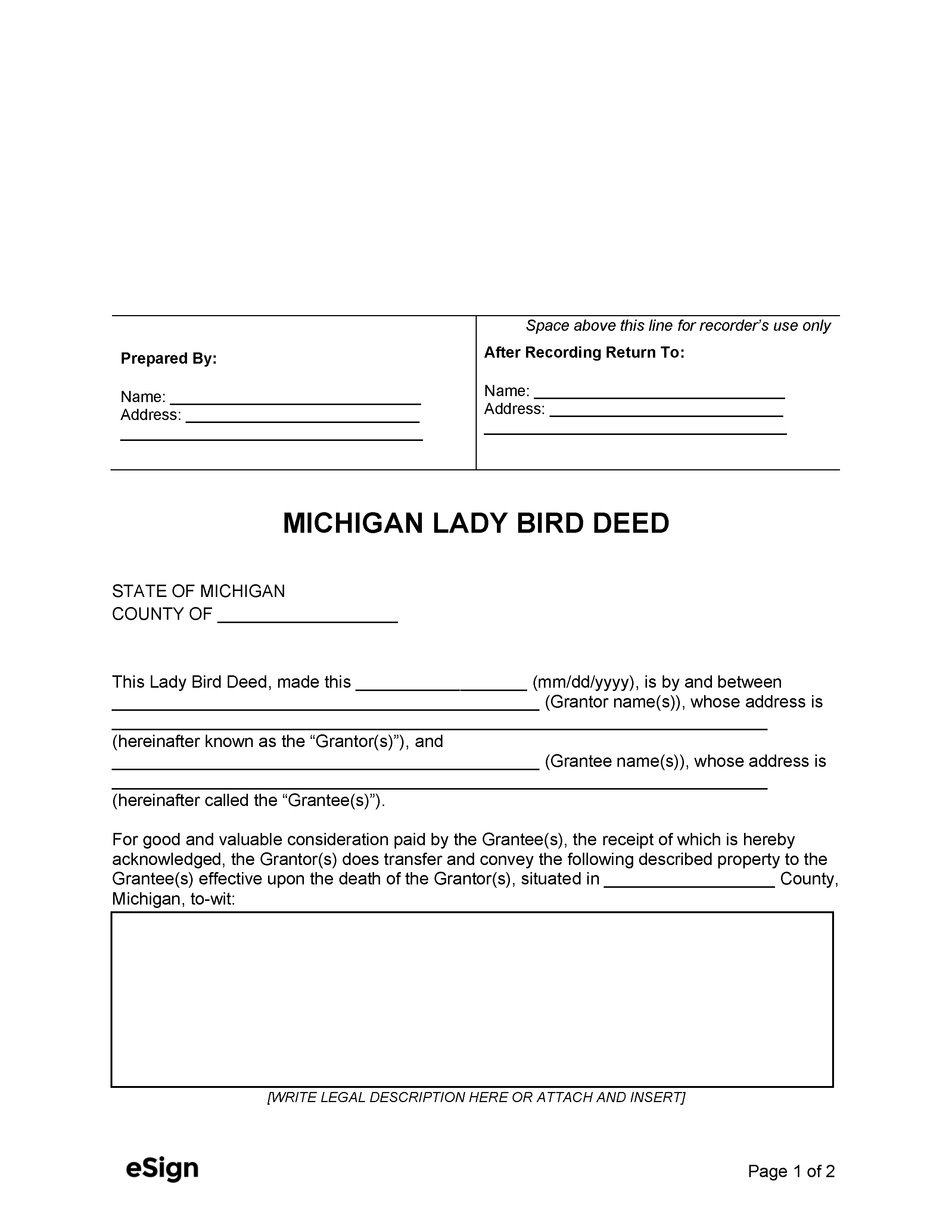 Lady Bird Deed – A type of quit claim deed that transfers the grantor’s property to an heir upon their death. Lady Bird Deed – A type of quit claim deed that transfers the grantor’s property to an heir upon their death.
|
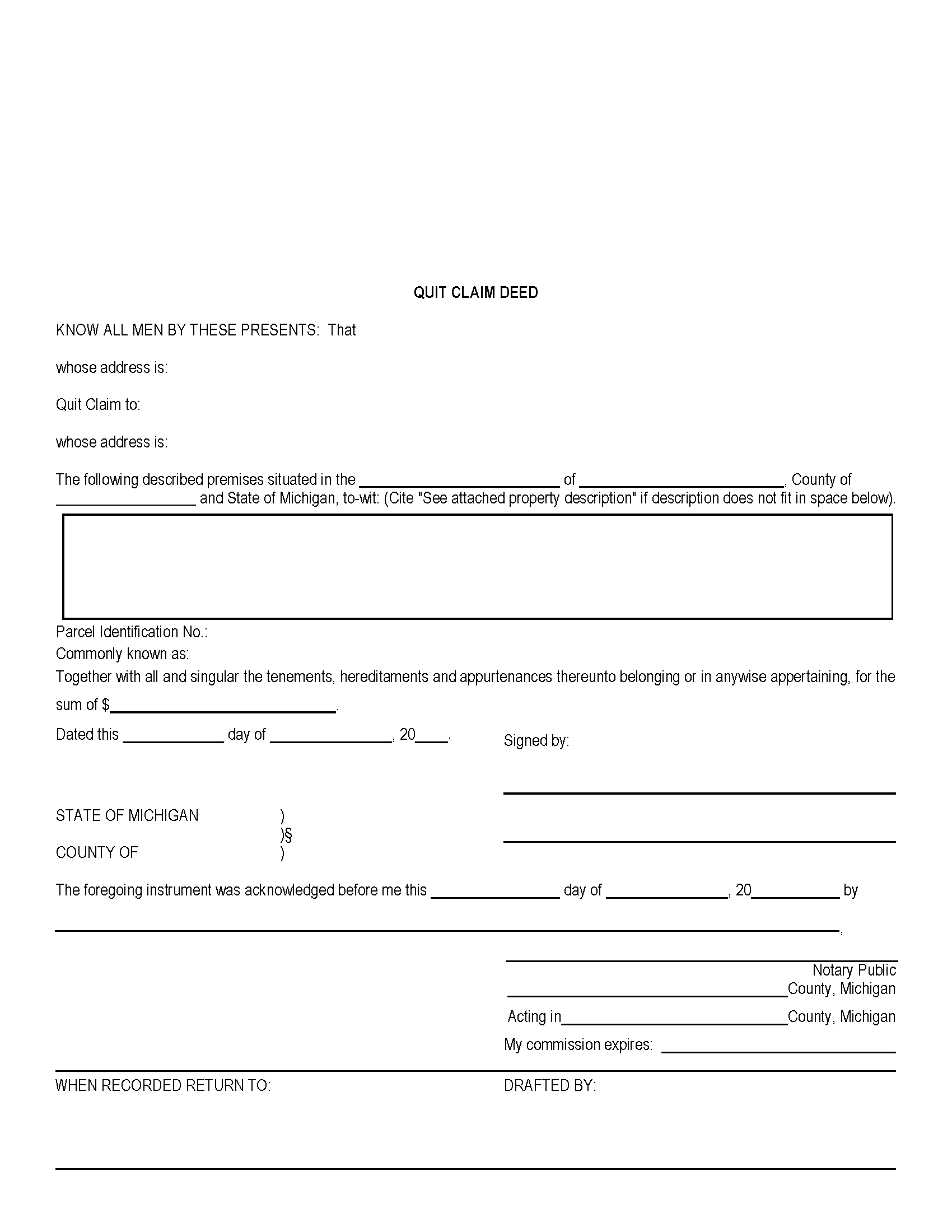 Quit Claim Deed – A legal instrument for the conveyance of property without any warranty provided by the grantor. Quit Claim Deed – A legal instrument for the conveyance of property without any warranty provided by the grantor.
Download: PDF |
Formatting
Paper – White, at least 20 lbs, no smaller than 8.5″ x 11″ and no bigger than 8.5” x 14”
Margins – 2.5″ top margin of first page, 0.5″ every other margin
Font – Black, at least 10pts[1]
Recording
Signing Requirements – Every deed must be signed by the grantor and notarized.[2]
Where to Record – Once signed, all deeds should be recorded with the Register of Deeds in the property’s county.[3]
Cost – $30 (as of this writing)[4]
Additional Forms
Addendum to Deed for Unplatted Land – This form can be attached to the deed to include the language needed in the transfer of unplatted land.[5]
